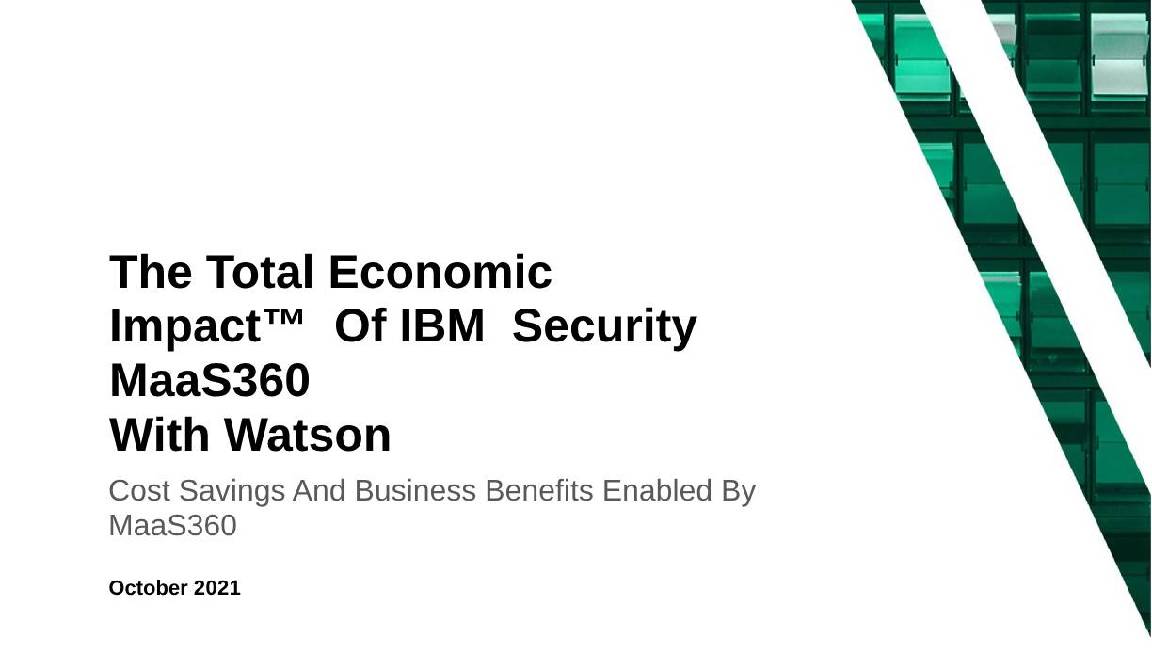Open source advocates "cautiously optimistic" about Cyber Resilience Act after industry pushback prompts changes
Amendments to the Cyber Resilience Act in December curtailed the potential impact on open source developers in the region, an industry body has said


Sign up today and you will receive a free copy of our Future Focus 2025 report - the leading guidance on AI, cybersecurity and other IT challenges as per 700+ senior executives
You are now subscribed
Your newsletter sign-up was successful
Changes made to the EU’s Cyber Resilience Act (CRA) have been welcomed by open source developers, who believe the updated legislation will be less deleterious to the ecosystem than its previous iterations.
The amended version of the CRA was published on 20 December 2023 and includes clarifications reducing the scope of the regulation, as well as a ‘light-touch and tailor-made regulatory regime’ for open source developers.
Thierry Carrez, general manager of the Open Infrastructure Foundation, said changes made to the CRA highlight the success of the pressure applied to the EU by open source advocates.
“It’s clear from reading the CRA version published on 20 December that the engagement of many open source advocacy groups — including the OpenInfra Foundation — has led to multiple clarifications regarding the openly developed open source model.”
Carrez said open source advocates are hopeful these clarifications will reduce the negative impact the CRA will have on open source software, which represents more than 70% of software used in European digital products.
"We’re cautiously optimistic that those clarifications will reduce the risk of CRA having global chilling effects around open source development and participation.”
He added, however, that open source community bodies will continue to lobby the EU in upcoming public discussions of the legislation.
Sign up today and you will receive a free copy of our Future Focus 2025 report - the leading guidance on AI, cybersecurity and other IT challenges as per 700+ senior executives
“We will continue to be proactive and urgent in our advocacy for open source as CRA implementation plans and timelines are determined. In the near term, we’ll be participating in discussions at the EU Open Source Policy Summit and FOSDEM.”
The Cyber Resilience Act has been a minefield for open source devs
According to Carrez, this new legislation is not as threatening as the heavy handed approach previous iterations of the Act included since it was first unveiled in September 2022.
The legislation was intended to boost cyber security and add further protections to digital products like Internet of Things (IoT) devices that have caused a dramatic expansion in attack surfaces.
In addition, the CRA placed new obligations on open source developers to ensure any software developed for commercial products conforms to new rules by submitting documentation, risk assessments, and post-release security requirements.

These requirements were deemed overly demanding by industry experts who signed an open letter in April 2023 outlining their concerns to the European Parliament.
“If the CRA is, in fact, implemented as written, it will have a chilling effect on open source software development as a global endeavor, with the net effect of undermining the EU’s own expressed goals for innovation, digital sovereignty, and future prosperity.”
This public outcry was successful in pushing the EU into amending the CRA so that some of the most severe restrictions placed on open source developers will be relaxed.
RELATED RESOURCE

Discover how MaaS360 enables cost savings
Some of the amendments made by the EU included tightening the definition of what constitutes commercial activity so that funding essential project support functions without the intention to profit is exempt.
A clearer distinction between the development and supply phases was also implemented, whereby the regulation comes into effect when software is made available on the market in the course of commercial activity.
Another example involves a separate definition for Foundations that are now considered “open-source software stewards” and subject to a ‘light-touch and tailor-made regulatory regime’.

Solomon Klappholz is a former staff writer for ITPro and ChannelPro. He has experience writing about the technologies that facilitate industrial manufacturing, which led to him developing a particular interest in cybersecurity, IT regulation, industrial infrastructure applications, and machine learning.
-
 Stop treating agentic AI projects like traditional software
Stop treating agentic AI projects like traditional softwareAnalysis Designing and building agents is one thing, but testing and governance is crucial to success
-
 PayPal appoints HP’s Enrique Lores in surprise CEO shake-up
PayPal appoints HP’s Enrique Lores in surprise CEO shake-upNews The veteran tech executive will lead the payments giant into its next growth phase amid mounting industry challenges
-
 Reprieve for open source industry as agreement reached on Cyber Resilience Act
Reprieve for open source industry as agreement reached on Cyber Resilience ActNews The Cyber Resilience Act has been maligned by open source advocates across Europe
-
 What's the EU's problem with open source?
What's the EU's problem with open source?Analysis The open source community has raised concerns about a raft of new regulatory changes in the EU in recent months
-
 EU Cyber Resilience Act a ‘death knell’ for open source software, critics warn
EU Cyber Resilience Act a ‘death knell’ for open source software, critics warnNews Critics of the act claim that requirements for open source software usage could severely impact the community
-
 Swedish privacy concerns result in fines over Google Analytics
Swedish privacy concerns result in fines over Google AnalyticsNews Swedish privacy authority ordered companies to stop using the ubiquitous web traffic analysis tool, in line with recent EU rulings
-
 Researcher says criticising Google cost him his job
Researcher says criticising Google cost him his jobNews Barry Lynn sets up new group to address platform monopolies after being pushed out at Google-funded New America
-
 £130 million Google-UK tax deal could be squashed by EU
£130 million Google-UK tax deal could be squashed by EUNews SNP and Labor question terms of perceived low-rate deal
-
 Google blames search “monopoly” on bug
Google blames search “monopoly” on bugNews Glitch was responsible for Yelp and TripAdvisor getting buried in search results, claims search engine giant
-
 EU gives Google more time to respond to anti-trust claims
EU gives Google more time to respond to anti-trust claimsNews Deadline to put together a response to claims it favours its own shopping service in search results extended to August
